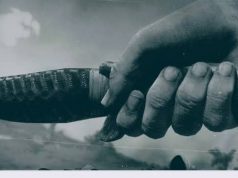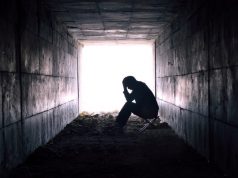FROM State House to Kirikiri, the book written by the former Vice-President Alex Ekwueme is an outstanding contribution to the genre of books of political leaders who suffered one kind of incarceration or the other during our period of military regimes. Alex Ekwueme’s book stands out because of the engaging manner it was written and the acute observations contained in the book, worthy only of the accomplished architect he was. But this should not surprise if one considers his attainments in early life even before stepping into the second highest office of the land.
Alex Ekwueme would probably be the most educated to have ever held the office of Vice-President of Nigeria. Better known for having distinguished himself as an Architect – he had the first and second degrees, plus the PhD in architecture, and started the first major architectural firm in the country – he also had degrees in sociology, history, philosophy, and law. With a mind so robustly educated, one would not be surprised at the quality and range of his memoirs.
I recall a similar book I read in my final year in the University in the mid-1970s, Darkness at Noon, a novel by Arthur Koestler, a story of the brutality of the State against one of its defenceless citizens, an old Bolshevic that was arrested, imprisoned and tried for some trumped up charges of treason. I still recall the despair, anger and bitterness that pervaded the story that made a lasting impression on me. Ekwueme’s memoir From State House to Kirikiri is also full of such anger and bitterness, largely for being dragged from the comfort of his home at gun point to detention then to prison, to live in the neighbourhood of common criminals for years. At the end of the saga, it was all a trumped up charge that a judicial tribunal easily dispensed with.
Many readers phoned, some texted, disputing the fact that the former Vice-President was incarcerated for eight years. I can confirm that from what he had recorded in the book, From State House to Kirikiri, and other sources, he was actually denied his freedom for that period, a part in Kirikiri and Ikoyi Prisons, the remainder in Government Guest Houses and at his country home in Oko, then in Aguata Local Government. When he was arrested by the soldiers, Alex Ekwueme was first taken to Bonny Camp, the hub of the coup, where he spent a few days before he was relocated to a guest house on Temple road, Ikoyi. The journey to Kirikiri was as dramatic as the first day of the coup when he was whisked off by gun totting soldiers from his residence at the wee hours of the morning of 31st December 1983.
While at the guest house at Temple road, he was told one day by the NSO officer that he had been asked to bring him to the NSO headquarters at Awolowo road. When they were leaving the Temple road guest house, Ekwueme, now used to their ways, had the mind to pack his meagre properties because he guessed he might not be brought back there. But he had no idea where they were taking him when they left the guest house. He wrote in the book, “going down towards the Mainland Bridge, I expected us to veer left on the Obalende road and then via St. Gregory road to Awolowo road. But we did not turn off. We continued down towards Adeniji Adele road at which point I then asked whether we were no longer going to NSO’s Headquarters at Awolowo road. His answer: ‘We are not going directly there exactly right now’. I lit a cigarette. We drove on, via Carter Bridge, to Iddo and turned left towards Ijora whereupon I concluded that we were heading for Kirikiri. Eventually they turned off Badagry road and in a few minutes we were right in front of Kirikiri Maximum Security Prison. He handed me over to the Prison Authorities, and presented some papers to them which they signed”.
When he settled in his cell, Ekwueme found out to his chagrin that every one that was somebody in the political dispensations, whether in government or opposition, was there. Ministers, Governors, members of the National Assembly, high-ranking businessmen were all there. Ekwueme was saddened and depressed with what he saw. He likened it to a declaration of war on the entire political class. The Ministers he saw in Kirikiri range from the Minister of Internal affairs in charge of prisons Ibrahim Tahir to others like Adamu Ciroma, Victor Masi, Sam Ikoku, Yahaya Dikko, Ibrahim Gusau, Akanbi Oniyangi, etc. Even young Audu Ogbeh who had just warmed the ministerial seat for less than two months was there.
The Governors included Lateef Jakande, AbubakarRimi and Jim Nwobodo who was reputed to have asked on arrival at Kirikiri whether the cells were air-conditioned. Even the Governors that served for less than three months such as Bakin-Zuwo, Lawan Kaita and Asheikh Jarma were there. Balarabe Musa who had been impeached a year earlier was also there. Dr. Olusola Saraki, Odumegwu Ojukwu and Alfered Rewane were not spared. Others like Prof. Ishaya Audu, External Affairs Minister, who was outside the country when the coup was announced, convinced that his integrity would bear him out, returned and was escorted from the airport straight to Kirikiri. It was that bad.
Readers would be astonished to find that Ekwueme used his vast architectural knowhow to give us detail physical description of life not only the Kirikiri but also the Ikoyi prisons where he was later moved. We know exactly where the detainee’s blocks of cells were. We could visualise the location of the Admin offices, the hospital block, playing fields, classrooms, assembly hall, chapel, workshop, stores, kitchens – the details were astounding and would hold you spellbound. Even the exact size of the cell he occupied and the distance he had to walk to the toilets was there. He also gave us description of the sizes of rats that harassed them throughout their stay and readers would even come away with comparisons with the sizes of rats in Ikoyi Prison, which he found to be smaller.
Ekwueme’s book gave us detail insight of life of the political prisoners in Kirikiri, how they interacted with each other and with the officials in the prisons. The book gave minute details of life from waking up to the time they were locked up to sleep, what they ate, what kinds of exercises and other form of entertainments they undertook. The detainees also kept a keen eye on the new regime, noting how they stumbled from one episode to another until they were also some months later overthrown by another set of soldiers.
After a stint in Ikoyi Prisons, Ekwueme was finally brought before the high-powered judicial tribunal headed by Justice Samson Uwaifo. As expected the tribunal gave Ekwueme a clean bill. In fact, they even found out that Ekwueme came out of public office poorer than he went in.
At the close of the book, the former Vice-President gave a challenge to all those who would read the book, ‘Why have I gone to this length cataloguing all the above details? To prove that I am a saint? Heavens no! The purpose is to put down facts which hopefully some historian of the future generations may investigate in detail and then pass judgement as to whether public service in Nigeria’s Second Republic was synonymous with thievery’.
My hope is that this outstanding document will be reprinted to enable it reach more people so that some can pick up the challenge of the late statesman.




